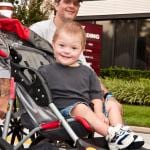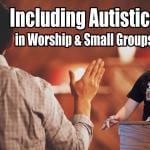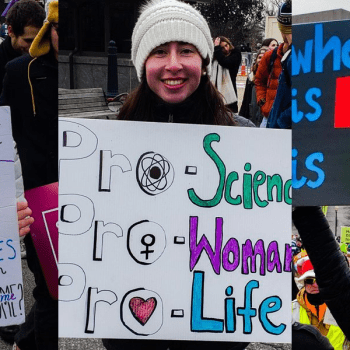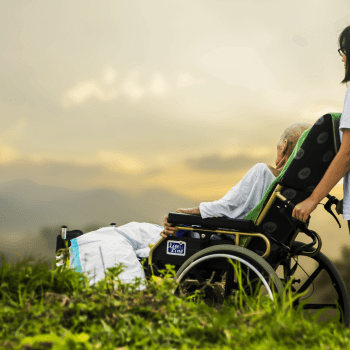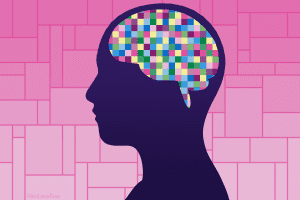
In the UK, doctors put DNR (Do Not Resuscitate) orders on a bunch of autistic adults’ files. This was done without consulting them or their family. This means that a minor health hiccup could easily become fatal. DNR orders make sense when someone is at the end of their life but don’t make sense for working-age adults who have no fatal conditions. Also, this contradicts Catholic Bioethics.
The Autistic Adults Given DNR Orders in the UK
A GP surgery which said autistic adults should have plans to prevent them being resuscitated if they become critically ill has been criticised.
Voyage Care, which cares for the group, was sent the letter by a surgery in Somerset amid the coronavirus crisis.
On Twitter, the firm’s boss Andrew Cannon said there had been “no consultation with families” and most involved were “working age adults.” […]
The paperwork is known as a “do not resuscitate” (DNR) order or an advanced care plan.
It is sometimes used if someone is nearing the end of their life or have a complex medical condition.
The paperwork is usually drawn up by medical professionals with the co-operation of the patient in question, if they have capacity to do so, or with their family.
“We have reported our concerns to Somerset Clinical Commissioning Group that this has happened with our area and they are taking this matter very seriously.
“The CCG are investigating the reports that have been made and have assured us they will take appropriate action. Please do let us know if you come across this.”
Interestingly, back in 2013, a similar procedure was overruled by Britain’s high court. As the BBC stated then, “A ‘do not resuscitate’ (DNR) order put on a disabled man’s records without consulting his mother breached his human rights, the High Court has ruled.”
Giving These People DNR Orders Is Bad Medicine
The federal government (National Institute on Aging), explains the differences that may make a DNR order proper for someone. In doing so, they also point out why it would medically unwise for a middle-aged person without serious conditions (cancer, serious cardiovascular disease, not just autism).
What is CPR? Cardiopulmonary resuscitation might restore your heartbeat if your heart stops or is in a life-threatening abnormal rhythm. It involves repeatedly pushing on the chest with force, while putting air into the lungs. This force has to be quite strong, and sometimes ribs are broken or a lung collapses. Electric shocks, known as defibrillation, and medicines might also be used as part of the process. The heart of a young, otherwise healthy person might resume beating normally after CPR. Often, CPR does not succeed in older adults who have multiple chronic illnesses or who are already frail.
A secular guide on disability rights in Pennsylvania notes that these are not even allowed legally in situations like above. This indicates they are bad medicine.
Individuals can secure these DNR orders, necklaces, or bracelets from their attending physician only if: (1) the attending physician certifies that the individual either has an end-stage medical condition or is both permanently unconscious and has a living will that directs no CPR to be provided; (2) the individual requests the DNR order, necklace, or bracelet; and (3) the individual is 18 years old, has graduated from high school, has married, or is an emancipated minor.
I presume many other states have similar laws.
Catholic Bioethics and DNR orders
National Catholic Bioethics Center on DNR Orders
Fr. Tad Pacholczyk writes:
If a DNR order is chosen, the condition of the patient must be such that the intervention would be of no significant benefit to him or her. Sometimes out of a generalized fear of medical technology, people may decide to put a DNR in place many years before any serious medical situation arises. Without knowing the medical particulars of their own future situations, however, this would be an unwise and ill-advised step. […]
So when death is imminent, and disease states are very advanced (perhaps with multiple organ failure), and assuming other spiritual matters, such as last sacraments, have been addressed, a DNR order may not raise any moral problems. The key consideration in making the judgement will be to determine whether the benefits of resuscitation outweigh the burdens.
Thus, an order for all autistic adults in long term care is unwise and done in a blanket way like that is definitely immoral. There may be a few cases where those in such a care home might have a DNR after consultation.
Willaim May on DNR Orders
William May answered a question about DNR orders in Zenit. The whole answer is worth reading but here are a few highlights:
Both the Vatican Declaration on Euthanasia and the United States Conference of Catholic Bishops explicitly affirm that a person or, if the person is incompetent, his proxy health care decision-maker can rightly refuse treatments that do not offer a reasonable hope of benefit or entail an excessive burden, or impose excessive expense on the family or the community.
Excessive burdensomeness is perhaps the major criterion for determining whether a proposed treatment is “extraordinary/disproportionate.” […]
This principle can be expressed as follows: “A ‘do-not-resuscitate’ order is morally permissible if one can judge that CPR is excessively burdensome for this patient, taking into account his situation and his physical and moral resources, or that CPR imposes excessive expense on the family or community.”
CPR can be administered either in a hospital to a patient who suffers cardiac arrest or outside a hospital by a rescue team to a person who stops breathing because of cardiac arrest.
Taking these two together, there is no way the mere fact of being an autistic adult in fulltime home is sufficient for a DNR order to be moral.
Nothing About Us Without Us
In the autistic (& wider disability) community, a rallying cry has been “nothing about us without us.” This is usually about parents or caregivers making all the decisions and doing all the activism. I find this applies here a fortiori. It is not someone who cares about this autistic adult trying to make the best decision for them (even if slightly misguided); it is a faceless bureaucracy saying that our lives aren’t valuable enough to save. This is discrimination. This is indirect euthanasia. Indirect because these autistic individuals are left to die when their lives are likely able to be saved. A DNR order is something a person might decide with their family while late in a terminal illness, it is never something that should be applied to whole classes of people. Jesus weeps for the suffering of these people.

